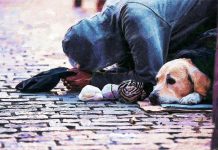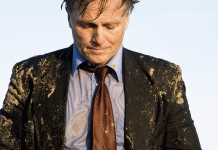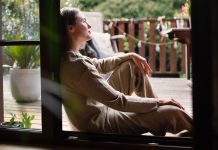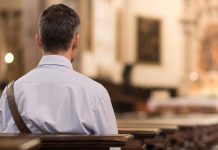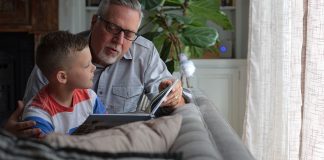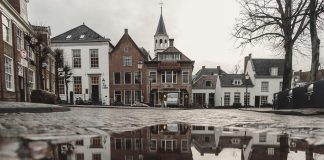Stubborn faith
On a number of occasions during his writing life, Nobel Prize winner and author Elie Wiesel tried to re-tell the story of a profound experience he’d had as a young boy in the Nazi death camp at Auschwitz. He wrote a play, a novel, and even a cantata to try to re-create his memory of this event, each of which remained unpublished. Finally,...
Imagine…a world without Christianity
“Imagine there’s no heaven ...” sang John Lennon. “… and no religion too.” The implication is that the world would be a better place without religion. Wrong. Christianity has changed the world in dramatic and positive ways.
Silence of the Lamb
Slapped, spat in the face, insulted, falsely accused, lashed, ridiculed with a crown of thorns, passed from judge to judge and booed by the crowd, the Son of God chose the most unusual form of defence. Silence.
Is disciplining children the responsibility of grandparents too?
“When grandparents enter the door, discipline flies out the window,” poet Ogden Nash once said, encapsulating one of the most common sources of intergenerational conflict—the role grandparents play in the upbringing of their grandchildren.
The paradox of independence: freedom at the cost of connection
The controversial story of Baruch Spinoza takes on a fascinating dimension with the explosive excommunication from the Jewish community decreed by the leaders of the Portuguese Sephardic community in Amsterdam—a decision accompanied by one of the most severe anathemas. This document made Spinoza one of the most reviled philosophers by both Jews and Christians, but attitudes towards him began to change after the...
The story of Yassine Mazzout and his one chance
We deem what they do worthy of pity or contempt. We see them searching through the garbage, gathering plastic or aluminium in bags, without realizing that they are part of a group of 15 million people globally who turn waste into honest income and who, involuntarily, care for the environment. Among them is Yassine Mazzout. Garbage not only saved his life, but transformed...
Old Testament and New Testament | The unity of Scripture
The Bible has 66 books written by different authors over about 1,500 years. Is there a common theme, a leitmotif? If so, which is it? Is there an Old Testament God and a New Testament God?
The tragic divorce
It is not the environment or the circumstances, but the concept of the meaning of life that is fundamental to the course of our lives. Life remains dependent on the value it holds in the mirror of the mind. The way we live is the visible messenger of the invisible inner man. Every form of action is born of faith, and every form...
The seasons of (un)belief in Christopher Hitchens
Christopher Hitchens was not merely an atheist but, as he described himself, a militant antitheist. It was in his home, at his invitation, that the group known as “The Four Horsemen of New Atheism” first convened. Born in 1949 in postwar England, Hitchens was shaped by the politics and intellectual currents of the 1960s.
The courage of freedom
“It was as if I were living in a fairy tale. And the most wonderful part was that I knew—hard as it may be to believe—that the story was true. None of the hardships of imprisonment touched me. The fear of the unknown no longer unsettled me, nor did the fact that, three days after my arrest, no one had yet called me...
COVID-19 vaccines safety: Does it take decades to get the answer?
Do we need to wait for the results of longitudinal scientific studies, extending to decades, to know if vaccines are safe?
What organic labels do and don’t say
The production of organic food has gained increasing importance worldwide, driven largely by consumer concerns over the potential negative health effects of foods grown through intensive, conventional farming methods (Brantsæter, Ydersbond et al. 2017).
Good reasons to read the whole Bible
As intimidating as the Bible may sometimes be, especially because of its size and its sometimes difficult passages, many who have read it from cover to cover say that it has changed their lives for the better—the spiritual resources the whole Bible can provide are not found elsewhere.
Book review: Juice
In my humble but literary-educated opinion, Tim Winton is Australia’s finest living novelist. Since winning publication of his first novel in a competition for young writers in 1981, he has had 10 more novels published, as well as collections of stories, plays, books for younger readers and a handful of non-fiction works. Winton has won Australia’s top literary prize—the Miles Franklin Award—on four...
A flash of heaven
Many families struggle with broken relationships and domestic violence. Because of this, some people are tempted to wonder whether marriage is still a worthwhile option. But the important aspects of family life still remain valid after thousands of years and these, if practised, can help our families to flourish, even in the twenty-first century.

